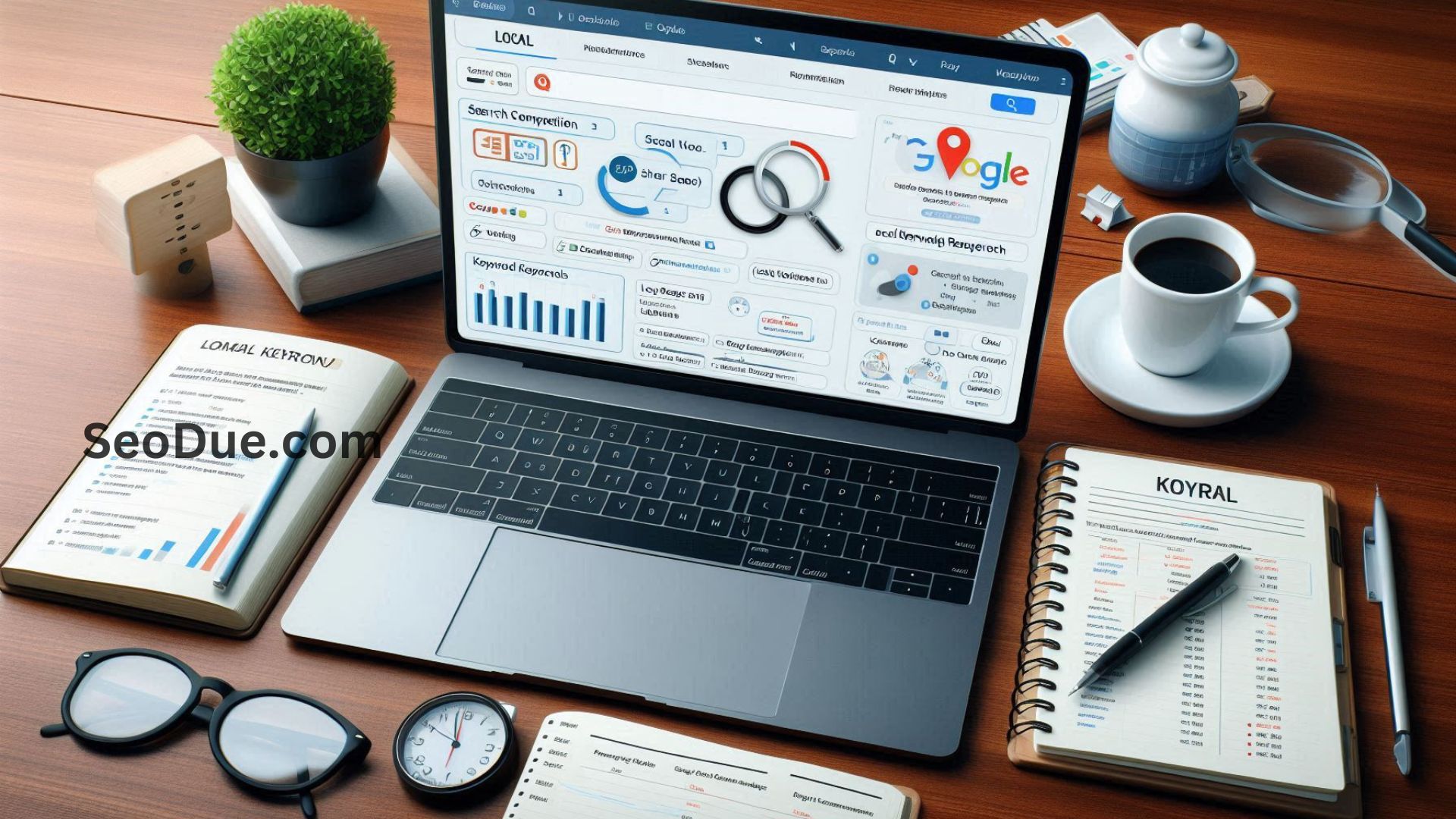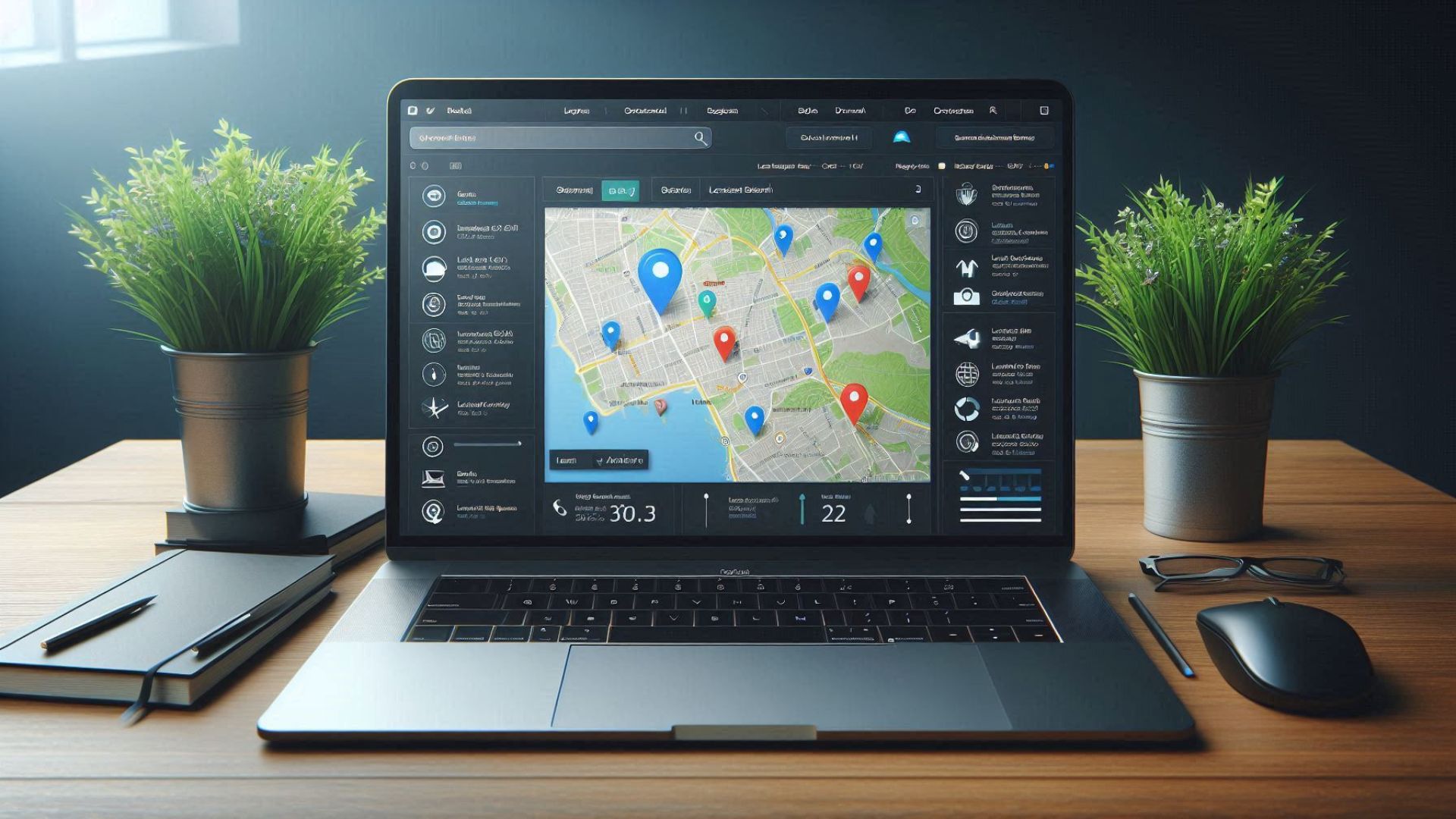What is the Best Tool for Local Keyword Research?
There are so many keyword research tools out there—literally hundreds! They range from beginner-friendly to super advanced, and from completely useless to incredibly helpful.
The best keyword research tools make your job easier. They help you find the right keywords to target and give you the data you need to rank for them. And the good ones don’t require you to spend a fortune or make ridiculous sacrifices to get access!
After working with tons of clients and using all kinds of keyword research and SEO tools, I’ve seen the good, the bad, and the downright awful. I know how important it is to choose the right tool for your needs. That’s why I tested over 80 free keyword research tools to find the best ones. Here are my top four picks, whether you’re looking for an all-purpose tool or something for a specific use case.
The Best Free Keyword Research Tools
- Moz Keyword Explorer: The best all-around free SEO keyword research tool.
- Google Keyword Planner: Great for finding paid keyword opportunities.
- Semrush: Perfect for advanced SEO pros who need powerful features.
- Free Keyword Research Tool: A super simple and easy-to-use option.
What makes the Best Keyword Research Tool?
The best keyword research tools are pretty simple in concept: you search for a keyword, and the tool gives you insights about it. But because people use keyword data in so many different ways, I looked for tools that could handle a variety of needs, along with some designed for specific purposes. Here’s how I narrowed down the list:

- Data included: A great keyword tool should give you everything you need to rank for a keyword—like traffic, keyword difficulty, and competitive SERP analysis. Every tool I picked includes these basics.
- Keyword optimization guidance: You don’t need to be an SEO pro to use these tools. The best ones offer clear, easy-to-follow suggestions to help you optimize for your keywords. Unlike tools like Ahrefs or Semrush, which analyze everything from site speed to domain authority, I focused on tools that are simple and helpful for business owners or marketers looking to rank for specific keywords.
- Free plan generosity: Some “free plans” are so limited they’re basically trials. I only included tools with truly useful free plans that won’t leave you hanging. Plus, upgrading should be affordable if you need more features. For example, Ahrefs, a favorite from last year, didn’t make the cut this time because its keyword tools are no longer free.
- Standalone functionality: Free tools should work on their own, without requiring any extra software, plugins, or extensions—especially paid ones. And while I didn’t focus on them here, WordPress SEO plugins can also be great if you’re running a WordPress site.
To pick the best tools, I tested them with the following workflow:
- Created accounts where needed and tried out any tutorials or onboarding.
- Searched for different types of keywords like “free keyword research tools,” “chocolate cake,” and “best white sneakers” to see how they handled various search intents.
- Checked the data provided—related keywords, metrics, and where the information came from (Google, social media, forums, or the tool’s own data).
- Confirmed how generous the free plan was (e.g., limits on searches, results, or features) and the cost of upgrading if necessary.
- Explored any extra features like competitive gap analysis or content optimization.
After spending over a dozen hours testing these apps, I landed on the four best free keyword research tools. Each one offers a free version that’s actually useful without overwhelming your budget when upgrading.
The Best Free Keyword Research Tools at a Glance
Here’s a breakdown of some top keyword research tools, what they’re best for, and what you can expect:
- Moz Keyword Explorer
- Best for: A well-rounded solution for SEO needs
- Standout feature: Keyword prioritization metrics
- Free plan: 10 queries per tool each month, 1,000 keyword suggestions, and 10 SERP analyses per query
- Google Keyword Planner
- Best for: Researching paid keywords
- Standout feature: Forecasting and budget planning
- Free plan: Completely free (but works best if you’re using Google Ads)
- Semrush
- Best for: Advanced SEO professionals
- Standout feature: Detailed, granular keyword data
- Free plan: 10 analytics reports per day and 10 tracked keywords
- Free Keyword Research Tool
- Best for: Simple, no-frills keyword research
- Standout feature: Suggested content angles
- Free plan: Completely free

Also Read: What are Some Successful Local SEO Case Studies?
The Best Free Keyword Research Tool Overall

Moz Keyword Explorer (Web)
Pros of Moz:
- The data is presented in a way that’s easy to understand, especially compared to other tools
- It has clear and simple metrics for prioritizing keywords
- It offers a decent set of tools for free
Cons of Moz:
- It doesn’t provide as much data as some other, more advanced tools
- The free plan only lets you make 10 queries per tool each month
Moz’s SEO platform offers several tools designed to help with keyword research. While it doesn’t include as much data as some other more complex tools (like SERP position history or the total number of keywords a competing page ranks for), this can actually be an advantage. It makes the tool less overwhelming for those who aren’t professional search marketers, while still giving you the essential metrics you need.
With the Keyword Explorer tool, you can search any keyword and see key data like its monthly search volume, difficulty level, and organic click-through rate (CTR). Below that, you’ll get a look at the pages currently ranking for that keyword, plus suggestions for similar keywords to target.
Metrics like keyword difficulty and minimum domain authority make it easy to focus on the keywords you’re most likely to rank for—helping you avoid wasting time on impossible targets.
The Keyword Gap feature (found in the Competitive Research tool) is especially useful, letting you see all the keywords your competitors rank for that you don’t.
Pricing:
You can use the keyword research features for free with up to 10 queries per tool each month, which includes up to 1,000 keyword suggestions and 10 SERP analyses per query. Moz Pro plans start at $99/month, giving you 150 keyword queries per month.
The Best Free Keyword Research Tool for Paid Keywords

Google Keyword Planner (Web)
Pros of Google Keyword Planner:
- Completely free, even if you don’t use Google Ads
- Great forecasting features for budgeting if you do use Google Ads
- Can generate keyword suggestions just from your website
Cons of Google Keyword Planner:
- Not very useful for organic keyword research
When it comes to PPC keyword research, Google Keyword Planner is one of the best tools available. It’s completely free, even if you don’t use Google Ads, so you never have to worry about hitting limits or paying for upgrades.
Google Keyword Planner has two main features: one for discovering new keyword ideas and another for digging deeper into search volume and forecasting.
The “Keyword ideas” feature is similar to many other tools. You start with a seed keyword, and it generates a list of related keywords, along with information on things like monthly search volume, competition, trends over time, ad impression share, and bid ranges. You can also refine your results by brand vs. non-brand keywords, source websites, and more. If you’re using Google Ads, the “Forecast” feature helps you plan your paid ads and budget ahead of time.
Although it’s mostly aimed at PPC, Google Keyword Planner can still give you valuable insights for your organic SEO strategy by showing you where ranking organically might help save on paid ads.
Pricing: Free!
Also Read: How do I Track My Local SEO Performance?
The Best Free Keyword Research Tool for Advanced SEO

Semrush (Web)
Pros of Semrush:
- Provides tons of detailed keyword data
- Offers a wide variety of specialized keyword research tools
- Generous free plan
Cons of Semrush:
- Can be overwhelming for beginners
- The upgrade plans are pricey
If you’re looking for something more advanced, Semrush is a great choice. It offers a ton of keyword data and makes it easy to dive into details, like SERP features (such as featured snippets, reviews, site links, image packs, etc.) and in-depth analysis of search results.
What sets Semrush apart is its wide range of keyword research tools. You get everything from basic traffic and search volume data to content-focused keyword research and competitive keyword gap analysis. Some key features include:
- The Keyword Overview
- Keyword Magic Tool for discovering new keyword ideas
- Keyword Manager and position tracking
- Competitive Keyword Gap analysis
- Organic Traffic Insights (which, when connected with Google Analytics or Search Console, helps uncover those tricky “not provided” keywords)
Plus, Semrush has the SEO Content Template tool, which helps you automatically create content briefs and optimize your content as you write. It grades your content in real-time based on readability, originality, tone of voice, and SEO. A visual “bullseye” graphic helps you strike the right balance, and it checks off SEO recommendations as you go.

The newly released Copilot AI feature makes proactive suggestions, like flagging when your rankings drop for tracked keywords, offering technical SEO advice, and reminding you to add extra info to improve your data.
All of these features are amazing, but they come with a hefty price tag if you upgrade. However, the free plan lets you start with limited access.
Semrush also integrates with Zapier, which allows you to automate tasks like site audits, connecting with Google Analytics, and syncing SEO tasks across your project management tools. This makes it easier to create an automated SEO system that saves you time for more creative work.
Semrush Pricing:
Free plan includes up to 10 Analytics reports per day and 10 tracked keywords. Paid plans start at $129.95/month for up to 10,000 results per report and 500 tracked keywords.
The Best Simple and Free Keyword Research Tool

Free Keyword Research Tool (Web)
Pros of Free Keyword Research Tool:
- Simple and easy-to-understand report
- Unique content angle suggestions
Cons of Free Keyword Research Tool:
- Very basic data
- No option to save your research
If you’re just looking for a simple tool to give you basic keyword data, Ryan Robinson’s Free Keyword Research Tool is a great, no-fuss option.
The Explorer tab shows related queries for any keyword you search, along with estimated search volume and keyword difficulty levels ranging from “low” to “very high.” One of the best parts is the suggested content angles. By clicking over to the Ideas tab (or hitting the lightbulb icon on any related keyword), you’ll get long-form keyword ideas that can help guide your content creation.
That’s really all the tool offers. It doesn’t give you a lot of detailed data, and there’s no upgrade option if you decide you want to dig deeper into your keyword research later. But if you just need basic keyword insights, it’s definitely worth checking out.
Pricing: 100% free.
Can you use AI Chatbots for Keyword Research?
You can definitely ask AI chatbots like ChatGPT and Gemini (formerly Bard) to help with keyword research, but is it the best choice?

The main perk of using AI is how easy and simple it is. You can ask for quick answers, and it gives you a straightforward response.
ChatGPT was more open about the sources it used (for example, it lets you click on “Searched 7 sites” to see which websites it referenced). But, it also gave me search volume numbers that looked impressive—until I realized they were made up. ChatGPT can’t pull real-time data (it will admit that if you ask). On the other hand, Gemini was more transparent. It said it couldn’t get precise search volume data (since it’s not connected to Google Keyword Planner) and only showed what kind of content is likely to rank for that keyword—not the exact content that’s ranking right now.
I’ll admit, both ChatGPT and Gemini have improved quite a bit, especially with more complex prompts. But the information they give still doesn’t match what you get from tools built specifically for keyword research—at least not yet.
If you’re in a rush and just need quick, simplified info on a keyword, an AI chatbot might be helpful. But for serious keyword research, I wouldn’t recommend relying on AI chatbots as your main tool—especially with so many dedicated, free keyword research tools out there.
That said, many SEO tools (though usually the paid ones) now use AI too, which is a nice combination of both worlds.

Also Read: What is Local Link Building and Why is it Important?
When Should you Upgrade from a Free Keyword Research Tool?
The short answer? Only upgrade when you really need to. If you can get all the data you need with one of the free plans mentioned above, there’s no need to pay for a full tool or upgrade to a paid plan.

But here are a few signs that it might be time to consider upgrading:
- You’re regularly hitting the monthly or daily search limits of your current plan.
- You’re missing out on features that aren’t available in the free version, like content optimization tips or tracking your site’s keywords and rankings over time.
- You need more advanced SEO tools, like technical SEO or site audits, which come with an upgraded, all-in-one plan.
When it’s time to upgrade, tools like Moz Pro and Semrush are great choices. They’re both really powerful. Plus, there are other tools with affordable starting plans, like GetKeywords, KWFinder, and Topic Ranker.
If you’re looking for more options, here are some lists from Zapier to get you started:
- The best SEO tools
- The best SEO rank trackers
- The best SEO audit tools
- The best WordPress plugins for SEO




Post Comment